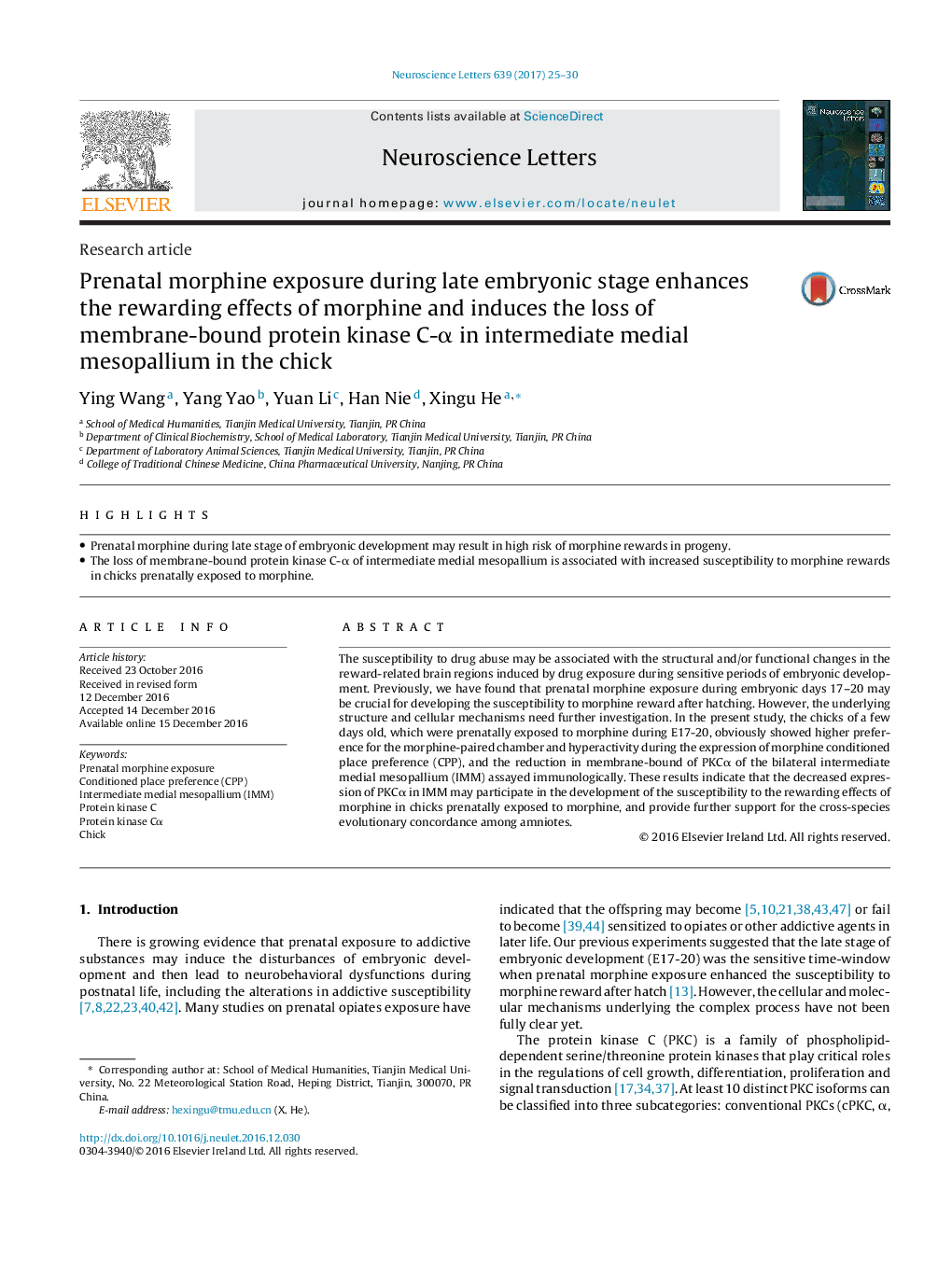| Article ID | Journal | Published Year | Pages | File Type |
|---|---|---|---|---|
| 5738555 | Neuroscience Letters | 2017 | 6 Pages |
â¢Prenatal morphine during late stage of embryonic development may result in high risk of morphine rewards in progeny.â¢The loss of membrane-bound protein kinase C-α of intermediate medial mesopallium is associated with increased susceptibility to morphine rewards in chicks prenatally exposed to morphine.
The susceptibility to drug abuse may be associated with the structural and/or functional changes in the reward-related brain regions induced by drug exposure during sensitive periods of embryonic development. Previously, we have found that prenatal morphine exposure during embryonic days 17-20 may be crucial for developing the susceptibility to morphine reward after hatching. However, the underlying structure and cellular mechanisms need further investigation. In the present study, the chicks of a few days old, which were prenatally exposed to morphine during E17-20, obviously showed higher preference for the morphine-paired chamber and hyperactivity during the expression of morphine conditioned place preference (CPP), and the reduction in membrane-bound of PKCα of the bilateral intermediate medial mesopallium (IMM) assayed immunologically. These results indicate that the decreased expression of PKCα in IMM may participate in the development of the susceptibility to the rewarding effects of morphine in chicks prenatally exposed to morphine, and provide further support for the cross-species evolutionary concordance among amniotes.
